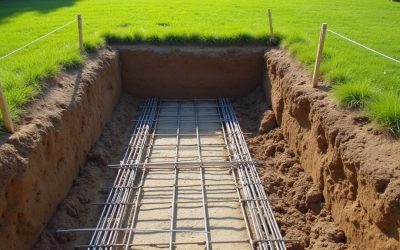Investing in property can be a great way to build wealth and generate passive income. But for some investors, the idea of living in their investment property is also appealing.
It is possible to live in an investment property, but there are certain legal issues that need to be taken into account before you make this choice. In addition, you must pay taxes on any profit made from the investment property when you file your taxes, and you must report all eligible expenses and rental income.
If you’re considering this option, it’s important to understand the pros and cons of living in your investment property before making a decision.
In this article, we’ll explore the potential benefits and drawbacks of living in an investment property so that you can make the right decision for your financial situation.

Can I live in my investment property?
Yes, it is possible to live in an investment property. The owner can claim tax deductions for certain expenses when the property is used as a rental property, such as council tax, interest on the mortgage used to buy the property (but only up to 20% due to Section 24), insurance and repairs and maintenance.
In addition, when an investor decides to make their investment property their principal place of residence (PPOR), they can no longer claim any deductions related to owning an investment property or declare rental income.
However, there are some things that need to be considered when making this change, including changes in tax laws and potential effects that need to be considered carefully before making a decision.
What are the benefits of living in an investment property?
Living in an investment property can have many benefits for the investor. Not only can they save money on rent, but they can also take advantage of tax deductions and other financial benefits.
In addition, living in an investment property gives the investor a chance to build relationships with their tenants and get to know them better. This is good for both parties.
In this section, we’ll explore some of the potential advantages of living in an investment property.
1. Tax Deductions on Expenses
When you live in an investment property, you can claim tax deductions for the percentage of expenses related to the income-generating part of the property.
If you are able to claim some expenses related to your investment property, they may reduce your overall tax liability.
However, if you continue renting out a portion of the property and declare it as your primary residence, you may not be able to claim certain deductions, such as depreciation on the property or mortgage interest.
2. Increased Income Determination
Living in an investment property can increase your income determination by providing you with additional sources of income.
For example, if you have a positive cash flow rental property, you can continue to work or maintain other income sources until you have enough money in your account to pay your bills.
In addition, living in an investment property allows you to plan for retirement by taking into account the return on your investments when determining your monthly expense needs.
3. Increased Stability and Security
Living in an investment property can provide increased stability and security for the investor. By living in the property, you are able to keep a close eye on it and ensure that it is well maintained.
This can help protect your investment from potential damage or vandalism. It also gives you peace of mind to know that the property is being taken care of.
In addition, living in an investment property can provide a sense of security for both the investor and their tenants. They will be able to get to know each other better and build relationships.
Finally, by renting out part of your property you will have additional income. This money can be used to pay your bills if something happens to your main money source.
4. Potential for Returns on Investment
Property has shown to be a good investment over time, and the faster you can clear mortgages or loans, the faster you will see a return on your investment.
Earning extra income from live-in tenants is a good way to pay back loans more quickly than using just your main source of income.
You can also use the money to make home improvements and renovations. This will increase the property’s value when you are ready to sell it.
5. Greater Flexibility with Rental Properties
Having rental properties can increase flexibility with living, as it allows you to generate extra income to cover your own rental costs. This can provide financial security and tax advantages over the long term.
However, owning an investment property does come with some disadvantages compared to being a homeowner.
For example, you may have more responsibilities such as maintenance tasks or dealing with tenants if something goes wrong in the property.
Additionally, there may be additional paperwork involved in managing multiple properties.
6. Increased Investment Diversification
Living in an investment property can increase investment diversification by giving the investor a better understanding of the property market, as well as a better understanding of tenants.
By living in an investment property, an investor can better understand how different factors affect their returns, such as price, location and rental rates.
This increased understanding helps them to create more diversified portfolios that are less susceptible to risks associated with single investments.

What are the things you need to consider when living in an investment property?
When considering living in an investment property, there are several important factors to consider.
1. Licence
In Wales, landlords must hold a licence in order to rent out an investment property.
The licence aim is to make people aware of their rights and obligations as both landlords and tenants. Landlords must register with Rent Smart Wales, as well as register their properties with the local council.
To obtain a license, they have to pass an authorised training course. As an alternative, they can delegate their property management to a licensed agent.
2. Property Rules and Regulations2
The rules and regulations for living in an investment property include:
- All properties that are let privately must abide by 29 rules and regulations, including being warm, free from damp and leaks, having safe electrics and gas appliances with an annual gas safety check and certificate issued by a Gas Safe professional.
- The property should have an Energy Performance Certificate to highlight its energy efficiency rating.
- The landlord should ensure the property is safe for habitation according to applicable building codes in their local area. This includes ensuring there are no pests or vermin present in the home.
- Landlords must provide tenants with a written lease agreement outlining the terms of their tenancy such as rent amount, length of tenancy and any other obligations or restrictions associated with the rental agreement.
3. Tenant Requirements
If you are planning to live in an investment property, be clear on the type of tenants you want to live with.
For example, in a typical rental situation, landlords will usually require a certain income level or minimum credit score to qualify for the property.
However, when you happen to be living in the same house you also need to consider if you want to live with someone of a certain age, gender, someone who doesn’t smoke, someone with a pet etc.
4. Insurance
When living in an investment property, it is important to have the right insurance in place to protect yourself and your assets.
Without adequate insurance coverage, you could be left vulnerable if something were to happen. For example, if you do not have proper home insurance and the property is unoccupied, you could be held liable for any damage that occurs while it’s vacant.
Additionally, without proper rental property or life insurance coverage, you may not be able to generate income if something were to happen to your rental property or yourself respectively.
Speak to an insurance broker to ensure you have the right insurance policy.
5. Living Expenses
Living expenses for living in an investment property can include:
Housing: rent, mortgage payments, property taxes, and maintenance costs such as repairs and utilities.
The questions you need to consider are which of these will you include in the rent, and which will be split out.
In a traditional setup, where you’re the landlord but live elsewhere, the tenants will usually pay rent to cover your mortgage payments and maintenance costs, but will arrange for utilities separately.
When you live in the property, you will usually arrange for the utilities in your name, and will need to decide how to cover the costs incurred by your tenants.
Keep in mind that you will incur higher costs than if it were just you, for example increased energy bills due to additional usage or high maintenance costs.
FAQ
What are the pros and cons of living in an investment property?
The pros of living in an investment property include:
- The potential to earn income from rent.
- Tax advantages such as mortgage interest deductions and capital gains exclusions.
- Potential for long term capital appreciation if the property market grows.
You should think carefully about the drawbacks of investing in a buy to let property, since these factors could reduce any potential profit and make the investment impractical.
What should I consider before buying a rental property?
Before buying a rental property, you should consider the following tips and tricks:
- Research the market: Look into local housing trends, rental rates, and competition to gain insight into the potential success of your investment.
- Get pre-approved for a mortgage: This will help you identify potential properties and make an offer quicker since you will already have financing in place if approved.
- Understand tenant laws: Know what legal requirements exist when renting out your property such as fair housing laws or landlord/tenant rights in your state or country of residence.
- Find reliable contractors: Find contractors that have experience in fixing up homes for rentals so they can give you estimates on how much it will cost to fix any issues that may come up with tenants after move-in day.
For more ideas see our Getting Started Guide
What are the tax implications of living in an investment property?
Living in an investment property has tax implications, as all forms of rental income are taxable. Additionally, when you sell the property, capital gains tax may be due on any profits made from the sale.
This means that you will have to pay taxes on any money earned from your investment property. This means you will have to pay more taxes.
What are the rental income and costs associated with living in an investment property?
Rental income can be used to cover expenses such as mortgage, property taxes, property management costs, insurance and licenses & permits. These costs can significantly impact your ability to live off your rental income.
What are the benefits of owning an investment property?
The benefits of owning an investment property include tax advantages, future financial security, potential house price rises over time, having a monthly income for paying the mortgage and any maintenance bills, and the ability to cover your own rental costs while still having extra cash left over each month.
- How Do Most People Finance Home Extensions? - December 14, 2024
- What Do You Need to Know About Foundations for a Single Storey Extension? - December 14, 2024
- 10 Key Changes to New Planning Permission Rules for 2024 - December 13, 2024


